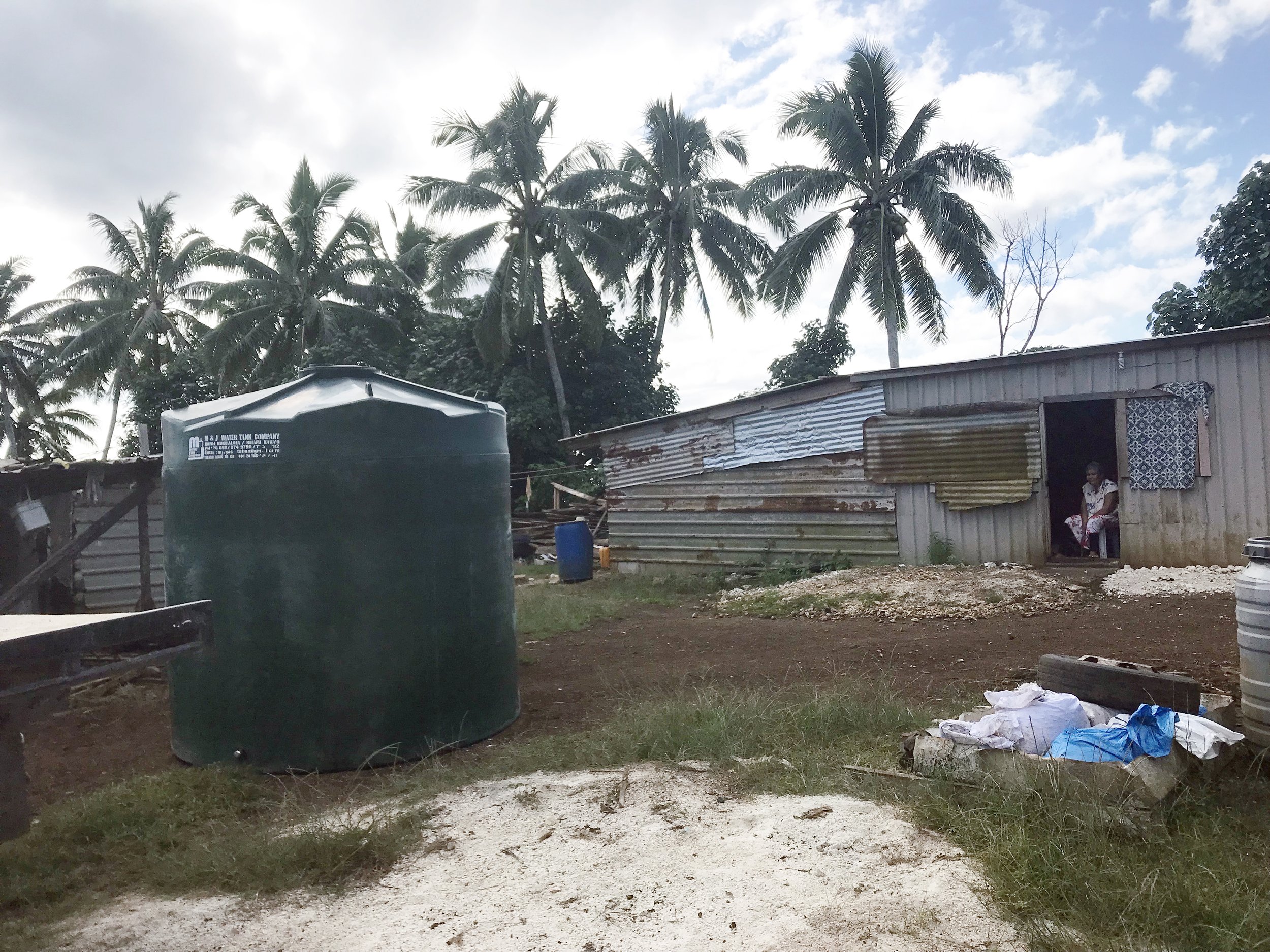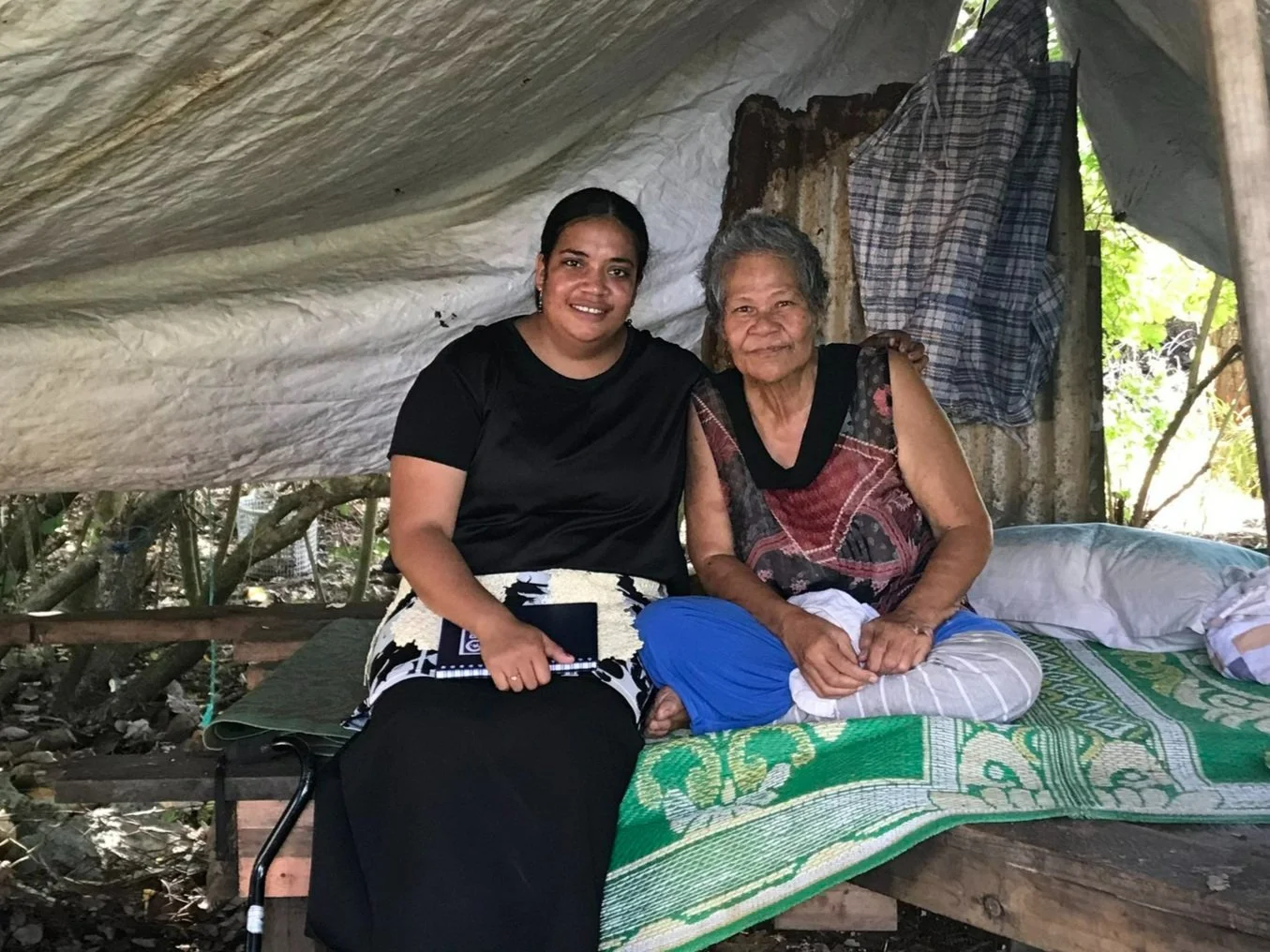Clean water for volcano and tsunami-impacted communities in Tonga
Above: Selu Kautai (right) and Melesiahi (a Live & Learn Tonga WASH officer) speaking after Selu received her water tank. Photo: Live & Learn Tonga
The powerful Hunga Tonga –Hunga Ha’apai volcanic eruption on 15 January 2022 drew global headlines, as the islands of Tonga were shrouded with ash and impacted by tsunami waves. Four people lost their lives, and around 84% of the country's population was affected by the disaster.
On Ha'apai and 'Eua islands, three quarters of people were severely affected.
On 'Eua, houses along the coast were completely destroyed by the tsunami, while water supplies were contaminated with falling ash.
More than a year later, many people remain displaced.
In the coastal village of 'Ohonua, many residents lost everything they owned. The disaster forced affected families to live in temporary housing with relatives and began the task of looking for new land to rebuild their homes on higher ground.
Through the Australian Humanitarian Partnership response to the volcano and tsunami, supported by the Australian Government, Live & Learn Tonga is assisting affected households on 'Eua to recover from the disaster, with a special focus on people with disabilities and adolescent girls.
Above: Selu’s new water tank on the day of installation. Photo: Live & Learn Tonga
Above: Selu Kautai (right) and Melesiahi (a Live & Learn Tonga WASH officer) speaking after Selu received her water tank. Photo: Live & Learn Tonga
As the Live & Learn Tonga team began gathering information in 'Eua, they found that most affected families had quickly begun the process of building their new homes. Although many of these structures were modest, the families reported that it was liberating to have their own space.
But one of the most pressing challenges was a lack of water tanks and functional hygiene facilities. While the community was sharing water from neighbours who still had usable tanks, and building their homes adjacent to each other to share washrooms and toilet facilities, collecting water was a time-consuming task, and especially challenging for the elderly or people with disabilities.
Selu Kautai, a mother, grandmother and elderly woman with a disability, had her home destroyed by the tsunami, losing all her possessions. After the disaster she and her family evacuated and have since built a small cottage on higher ground.
“Even though we are able to construct a cottage in which to live, one of our main issues is not being able to afford a water tank," Selu said.
"I’ve been dreaming of having a water tank since the day we moved here because that is the only way to liberate us from collecting water from afar. Fortunately, our nearest neighbour still enables us to collect water from them," she said.
"The worst part is when my children and grandchildren are out and don’t notice we are out of water, so I must wait alone, thirsty, for their return.”
Selu's household was provided with a water tank by Live & Learn through the AHP response, which was "a huge relief" and "a dream come true" for Selu and her family.
"All I have to say is how grateful I am in the deepest sense," Selu said.
With support through the AHP response, Selu says she now feels more confident and prepared for future disasters and shocks, and is hopeful that her family's quality of life will continue to improve.
Live & Learn Tonga is one of several local non-government organisations (NGOs) who are working together to deliver the Australian Humanitarian Partnership response in Tonga, funded by the Australian Government. The response aims to support recovery from the volcano and tsunami disaster, as well as to improve future resilience. Live & Learn Tonga is supported by Live & Learn Australia and Plan International Australia.




